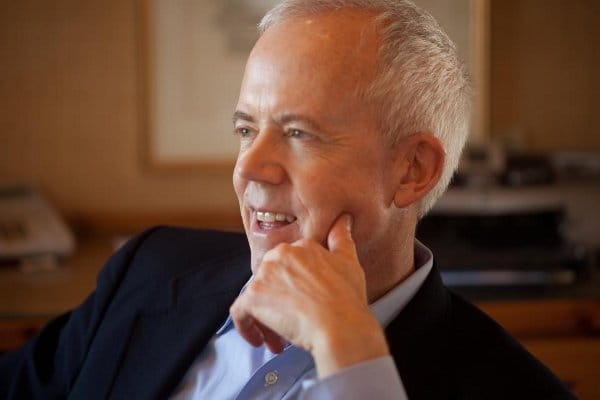Bill Bloomfield Aims for Upset Over Partisan Incumbent Henry Waxman

Credit: bloomfieldforcongress.com

A wave of anti-incumbency has rocked recent Republican primary elections across the country, but they aren't the only signs of a possible shake-up on Capitol Hill. In California, the state's first-ever open primary has put a once safely-Democratic Los Angeles congressional seat in play, setting up an outcome which could send reverberations through the American political landscape.
Independent challenger Bill Bloomfield wants to unseat 37-year veteran Congressman Henry Waxman in California's 33rd Congressional District. In June, Bloomfield advanced to the general election in a crowded field of 4 Democrats, a Republican, a Libertarian and a Green party candidate. He won 24.6% of the primary vote. Incumbent Rep. Waxman pulled in just 45.3%.
Bloomfield credits new redistricting and open primaries as the "one prescription working", resulting in an unprecedented opportunity to move Congress forward towards a nonpartisan and functional future.
"At least in California, where we have independent redistricting and open primaries, we can hold you accountable," said Bloomfield. "We don't care what you say, we don't care about your politicking, if you don't get the job done, we the voters will not send you back."
Bloomfield said Rep. Waxman has changed since first being elected into Congress in 1975, and says in the past four years he has rarely voted out of line with Democratic initiatives.
"It's not about how liberal [Waxman] is or isn't, I'm running because of how partisan he is," said Bloomfield.
Gallup's congressional approval rating once again puts public opinion of Congress at 10%, an all-time low. Critics have called the 112th Congress "the worst Congress ever" due to their inability to pass legislation.
Bloomfield viewed 2012 as the perfect time to utilize redistricting reform and California's open primary. By winning, he wants to encourage other states to make the same reforms.
"For some people voting in this district, for the House seat, it is the first time their vote will matter. This is first time the district isn't gerrymandered," said Bloomfield.
"The truth is we're writing the book on running as an independent," he continued.
Also on Bloomfield's radar is fellow independent and a candidate for Senate in Maine, Angus King. The former two-term governor is currently running as an independent to replace Republican Sen. Olympia Snowe's vacant seat. Both men have strong support and a realistic shot of winning, despite lack of party support. They met face-to-face for the first time three weeks ago in Washington, D.C. at a No Labels event.
King has declined to state who he would caucus with if he is sent to Capitol Hill. It's a principled decision Bloomfield himself supports.
"I respect him a lot," said Bloomfield. "Both of us are refusing to say who we will caucus with and that's because both of us don't want to caucus with anyone."
"One should be able to run as an independent, win, and not have to choose a side between the Republicans or the Democrats, and be able to get committee assignments," he continued.
In fact, Bloomfield has his own strategy when it comes to making a difference through committee assignments in Congress. As one of the only viable candidates to refuse PAC money, he says he could be a valuable resource on several congressional committees.
"When I get back , I want to get [Minority Leader Nancy] Pelosi and [House Speaker John] Boehner in a room together and tell them to put me on a committee," said Bloomfield. "Not to simply push the only independent to the side, but find committees that need a nonpartisan, one who doesn't owe anything to special interests."
He is confident in such an approach because the political will is there. No Labels has been spearheading initiatives designed to fix partisan gridlock by recruiting lawmakers open to compromise. A mandate to send Bloomfield to the Hill would find him an active proponent of such efforts like the Fix Congress Now Caucus, he says. Bloomfield is one of the co-founders of No Labels and said the group has recruited eight senators and nearly 40 House members who are "bipartisan but pragmatic".
Of this growing coalition of lawmakers already in Congress, Bloomfield said, "they get it."
Up until now, the pure numbers game of Congress have led many to question the practical difference one independent House member could achieve. With the new caucus focused on making Congress work, and not on partisan agenda or winning elections, the power to sway legislation could move away from the ideological control of political parties.
"Now, I'm not one of 435, I'm one of 40--and out of that 40, I'm the only true, pure nonpartisan," Bloomfield said.
To Bloomfield, a large part of his campaign is to set a precedent. An independent win against a long time incumbent would garner huge press attention, and Bloomfield hopes, the imagination of independently-minded people in other states.
"First and foremost it sends a powerful message. It's one thing for a Tea Party-backed candidate to win," said Bloomfield. "But for the public to take out someone because he's too partisan--that's a whole other story."




